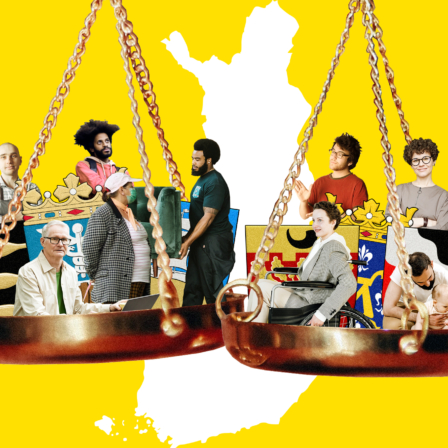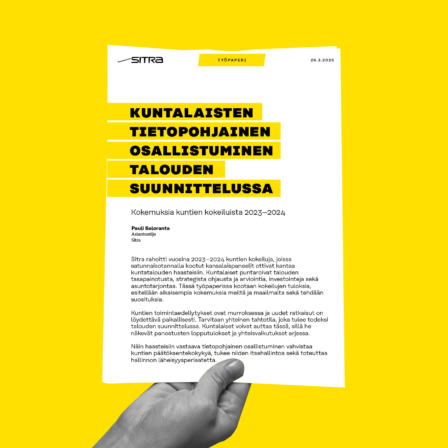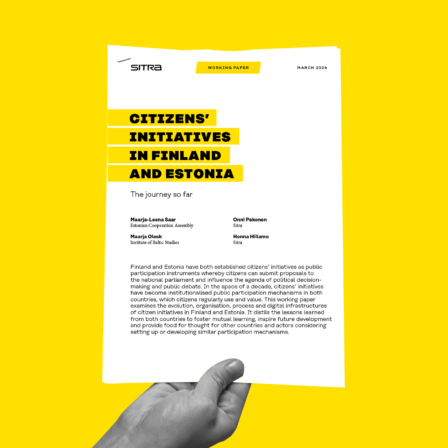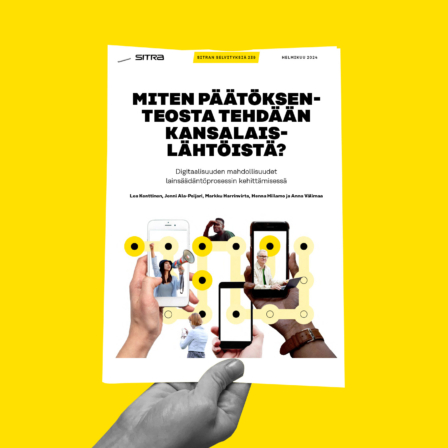On Monday, May 26, ninth-graders shared their thoughts with President Stubb about the topic of security and the factors that influence young people’s sense of security. The discussion covered both security in local neighborhoods as well as broader national security. Recent studies show that young people’s confidence in future and sense of security have declined.
Before the school visit, students’ views were gathered with the digital Polis platform. A total of 167 students from five Helsinki schools responded to statements and contributed their own perspectives to the discussion.
The Polis platform, introduced in Finland by Sitra, aims to enable constructive societal dialogue. The online discussion with youth was organized in collaboration with the City of Helsinki.
“It’s great that the President wants to include young people’s voices in the security discussion, which often remains the domain of decision-makers and a few experts. This helps increase decision-makers’ understanding of the themes that matter to youth,” said Niina Halonen-Malliarakis, principal of Vesala Comprehensive School.
Young people believe Finland is well prepared for crises
The Polis discussion that preceded the President’s visit revealed areas of consensus and divergence in young people’s views on security.
Polis discussions and further dialogues with decision-makers can be one step toward rebuilding young people’s confidence in the future.
Participants widely agreed that people and institutions in Finland can be trusted. They also felt that Finland is well prepared for various crises. Cooperation during difficult times was seen as a national strength.
However, a more somber note emerged: nearly half (49%) of the students expressed concern about the security of Europe.
In addition to international security, the discussion touched on topics such as urban security in Helsinki and technological development. Opinions were more divided on whether city’s safety should be enhanced by adding more security personnel or whether AI poses a future security threat.
Three distinct opinion groups
Based on their views, students fell into three groups. They were named by Sitra’s experts as those confident in their security, those concerned about security, and moderate middle-grounders.
The confident group viewed many technology- and foreign policy-related threats as less serious. They trusted their ability to navigate urban environments and did not see a need for more security guards in malls or stations.
Sinua saattaisi kiinnostaa myös
“This group of young people appeared unusually self-assured. They also placed less importance on equality and trusted their media literacy even in the age of disinformation,” says Kirsi Hantula, Sitra’s Senior Lead.
The concerned group, on the other hand, perceived more threats – both in everyday life and in the international security landscape.
“Public debate has recently highlighted how young people’s well-being, sense of security, and belief in the ability to influence are at risk of declining. Polis discussions and further dialogues with decision-makers can be one step toward rebuilding young people’s confidence in the future,” Hantula summarises.
Sitra aims to develop a model based on this security discussion to help decision-makers better understand young people’s perspectives.Full analysis of the students’ Polis discussion on security can be found in Finnish here.



















Recommended
Have some more.